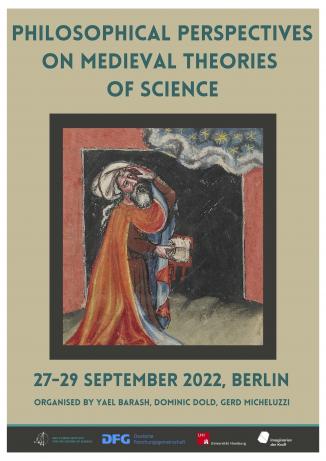Sep 27-29, 2022
Philosophical Perspectives on Medieval Theories of Science
'Medieval science' is a fascinating object of study, both when viewed as a historical precondition of the rise of 'modern science', and when studied because its instances provide important examples of significantly different, yet highly sophisticated ways of thinking. However, those who wish to study particular instances of 'medieval science' in light of general philosophical reflections on science from the Middle Ages will not find much help in the recent literature: no general history of developments and shifts in medieval 'theories of science' is available.
Detailed and systematic studies on medieval 'theories of science' are, thus, scarce. This is regrettable as a robust evaluation of 'medieval science' will, at least in its details, depend on the precise shape that 'theories of science' took in the Middle Ages. Here, we tentatively adopt a very broad and inclusive understanding of a theory of science as a combination of both 'scientific methods' and of the ways in which these 'methods' relate to philosophical background assumptions (stemming, for instance, from metaphysics or natural philosophy). Through combining theoretical approaches with case studies, the conference has the potential to sharpen this merely schematic understanding and help us work towards a more robust definition of these concepts. Beyond this, the conference is also meant as a celebration of the work by both junior and senior scholars and an opportunity to discuss promising directions for future research on the topic of medieval theories of science.

Conference poster.
Address
This is held on site.
For the first two days of the conference, the conference will be held in the Main Conference Room of the Max Planck Institute for the History of Science. The last day will take place at Freie Universität Berlin, Van't-Hoff-Straße 6, Meeting Room 102a.
Contact and Registration
Places are limited. To enquire about registration, please email MEDIEVAL.THEORIES.OF.SCIENCE@GMAIL.COM.
